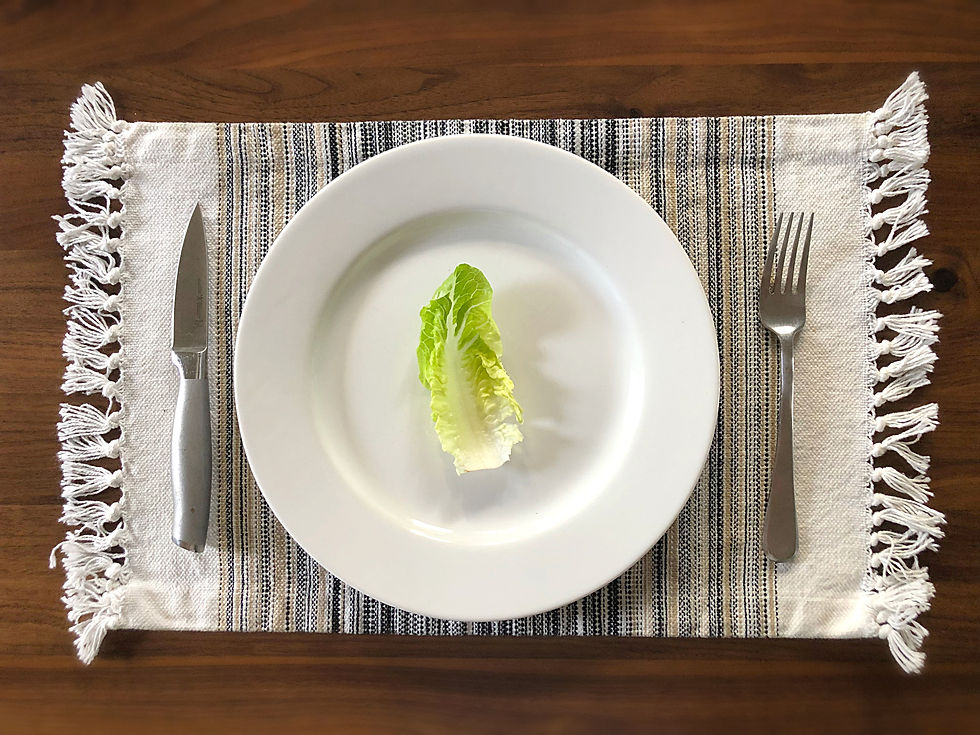Written by: Natalie Faella MS, RDN, LDN | August 11, 2021

When you think about what influences your day-to-day choices, like what to wear, eat, or drink, what comes to mind? What about the things that influence your thoughts and feelings about yourself and others? “Diet culture” may not be one of them, but likely has a larger impact than you think.
Simply put, diet culture is a belief system that idolizes thinness and demonizes fatness. It perpetuates weight stigma and creates a morality around food — labeling some as good, healthy or “clean” and others as bad, or even toxic, addictive, and to-be-avoided-at-all-costs. It also promotes weight loss as the solution to all. Whether we’re aware of it or not, diet culture is a prominent part of our everyday lives.
But, why is it so influential?
The diet industry profits by first sending the message that we need to change (i.e., lose weight, tone up, achieve that “perfect” body) in order to be better and happier. We’ve all seen the “before and after” photos where the “after” person appears more lean, sculpted and happier (and for some reason always tanner, too?). Next, it offers a diet plan, pill, tea, supplement, program, etc., that promises we will achieve these results and be slimmer, more toned, and of course, happier. But what it doesn’t tell us is that this magic solution is actually designed to fail. It may initially lead to some short-term results, but usually is not sustainable for the long-term. Or it might in fact just not work at all. So then we try a new diet, or pill, or program, hoping to achieve those desired results because it must have been us that failed, not the proposed solution, right? And the cycle continues. This is why the diet industry is a multibillion dollar industry.
Not to mention, the vast majority of our healthcare providers prescribe weight-loss as the solution to most health issues. When in reality, weight has very little to do with health. (For more on this, check out for my “The Surprising Truth About Your Weight” blog).
So, what can we do?
Knowing all of this information is a good first step to rejecting diet mentality, or in other words, literally not buying what diet culture is selling. But it can be so deeply ingrained in us that knowing isn’t always enough. When we see or read those too-good-to-be-true claims like “Lose 7 lbs in 1 week!” or “Flatten your belly, improve your energy…” how could we not be tempted? Or when you see a friend who has lost weight and says they did it just by cutting out certain foods, or following some 21-day cleanse, etc., wouldn’t you think you could (or should) do it, too?
Or when you say you’re going to do a diet short-term “just to get some initial weight off” or kick start a healthier lifestyle. It’s like saying I’ll have one last cigarette before I quit — it isn’t helpful for your health or for rejecting the temptation in the future. All this “short-term diet” or cleanse would do is increase the likelihood of overeating at some point once it’s over and probably dehydrate you.
Try to remind yourself that the claims that sound too good to be true usually are in fact just that, and that restrictive diets, cleanses, weight loss supplements and programs, etc. are not designed for long-term success. (Think about it, how could a 21-day cleanse lead to long-term results?)
What is designed for long-term success?
By now you know I’m going to say intuitive eating, as “rejecting diet mentality” is one of the 10 principles. This means eating, drinking and moving and a way you enjoy that focuses on health and what feels good in your body. This is most sustainable and cannot be prescribed by someone else — we must learn it on our own. Because when we eat, drink, and move with the focus of weight loss or body perfection, diet culture wins and we can enter that viscous diet cycle.
I know it is easier said than done — rejecting diet mentality and choosing to eat, drink and move in the way that works best for us and not in the way we’ve been led to believe we should. Keep in mind, this can look different day to day, week to week, month to month… the important part is that we keep tuning into our intuition to make these choices.
Start today just by trying to notice: what impacts your eating choices? What reasons are you choosing to exercise? And why exercise/move in that way, specifically?
This can be one small step for us and giant leap towards more intuitive eating!
Stay tuned on for more on intuitive eating and my anti-diet approach to nutrition, health, & wellness by subscribing here.
Commenti